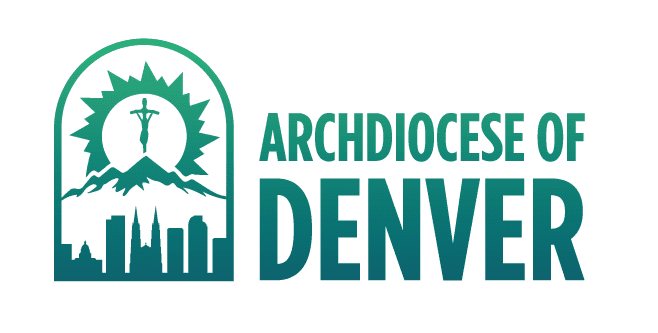Information about National Collections:
The following collections are approved by the U.S. Conference of Catholic Bishops (USCCB) for specific needs of the Church. These collections are taken up in parishes as a second collection after the Sunday offertory. Promotional materials are free to the parish and are ordered for the parishes by the Archdiocese (contact Carrie Sigman in the Archbishop’s Office to adjust your parish’s kits). You can find more detailed information about the individual collections at the usccb.org website.
Archdiocese for the Military Services
With no military or government financial assistance, and collections not allowed in military chapels, the AMS must rely wholly on the generosity of the U.S. Catholic community to operate its many programs and services, which include support of Catholic Chaplains as well as maintaining Sacramental Records (baptisms, confirmations, marriages) for anyone receiving the Sacraments at a military installation. The AMS stores over 2.5 million records and receives over 10,000 requests for copies of records each year. This collection is taken once every three years. For more information, visit the Archdiocese for the Military Services website.
Black and Indian Missions
This collection provides religious support for evangelization programs among African Americans and Native Americans in 133 (arch)dioceses in the U.S. The BIM collection is taken up in most parishes on the first weekend in Lent. For more information, contact The Black and Indian Mission Office.
Catholic Relief Services Collection
This collection (formerly known as the American Bishops Overseas Appeal) funds to work of Catholic Relief Services, the USCCB Office of International Justice, Migration and Refugee Services, Pastoral Care for Migrants and Refugees, the Holy Father’s Relief Fund for emergency relief, and the Catholic League Immigrant Fund.
Catholic Relief Services Rice Bowl Collection
Individuals and families are encouraged to make personal offerings throughout Lent. When these donations are turned in to the parish, 75% of funds are sent to CRS Rice Bowl food security projects worldwide which support agriculture, nutrition, education, and self-sufficiency among the poor. The remainder of the funds (25%) is distributed locally within the Archdiocese of Denver to assist parishes with anti-poverty programs and food banks.
Catholic Campaign for Human Development
Since 1970, CCHD has granted more than $270 million to 40,000+ community-based, self-help projects initiated and led by people living in poverty. Seventy-five percent of funds is forwarded to the national CCHD office to fund projects around the U.S. and 25% is retained by the archdiocese to fund local grants directly.
Catholic Communications Campaign
This campaign supports media projects that promote Gospel values and bring the Catholic Church’s message to television, internet, radio and other media, and special projects of the Catholic press. Fifty percent of the communications campaign collection goes to the national office, while the other 50% is used locally.
Catholic Home Missions Appeal (for U.S. and territories)
The CHMA collection funds the efforts of evangelization, religious education, the maintenance of mission parishes, the training of seminarians and lay ministers, and ministry with ethnic groups in the U.S. and the island territories in the Pacific and Caribbean. Four out of every 10 dioceses in the U.S. receive a subsidy directly from the CHMA collection. Learn more about Catholic Home Missions Appeal here.
The Catholic University of America
This national collection provides funding for academic scholarships at the Catholic University of America in Washington D.C. This 130-year-old Catholic University is the only institution of higher education founded by the U.S. bishops. Students come from all 50 states and almost 100 countries. The collection for the CUA is taken up in most parishes on the first or second weekend in September.
Church in Central and Eastern Europe
The collection helps to rebuild the Church after 70 years of communist repression by supporting seminaries, social service programs, youth ministry, pastoral centers, church construction and renovation, and the transmission of the Gospel message through Catholic media in 28 countries. Visit the webpage at the USCCB site for more information.
Church in Latin America
Support for various pastoral projects throughout Latin America and the Caribbean includes the works of evangelization, formation of laity, religious and seminarians, as well as youth ministry and catechesis. Funding is limited to program expenses and excludes building construction.
Solidarity Fund for the Church in Africa
This is not a mandatory collection but is approved by the USCCB and highly recommended for parishes in the archdiocese. This special fund supports the future of the Church in Africa by funding grants for pastoral projects that range from Catholic education to evangelization.
Holy Land Collection (Good Friday)
The Pontifical Good Friday Collection for the Holy Land goes to the Franciscans of the Custody of the Holy Land who have the unique responsibility of caring for the Holy Places as well as caring for the Christians living in the Holy Land, in order to maintain a Christian presence in a land that is filled with a majority Islamic and Jewish population.
Peter’s Pence Collection
The Peter’s Pence Collection enables the Holy Father to respond with emergency financial assistance to requests for aid to the neediest throughout the world – those who suffer as a result of war, oppression and natural disasters.
Retirement Fund for Religious
This January collection is coordinated by the National Retirement Office (NRRO) and offers financial support for the day-to-day care of over 34,000 Catholic sisters, brothers, and religious order priests. Please visit the National Religious Retirement Office for more information.
World Mission Sunday
Established by the Society for the Propagation of the Faith, World Mission Sunday is a worldwide collection which is scheduled on the next-to-last Sunday in October for the faithful to recommit themselves to the Church’s missionary activity through prayer and sacrifice. Funds are distributed to over 1,100 mission dioceses throughout the world with the criteria based on greatest need.

